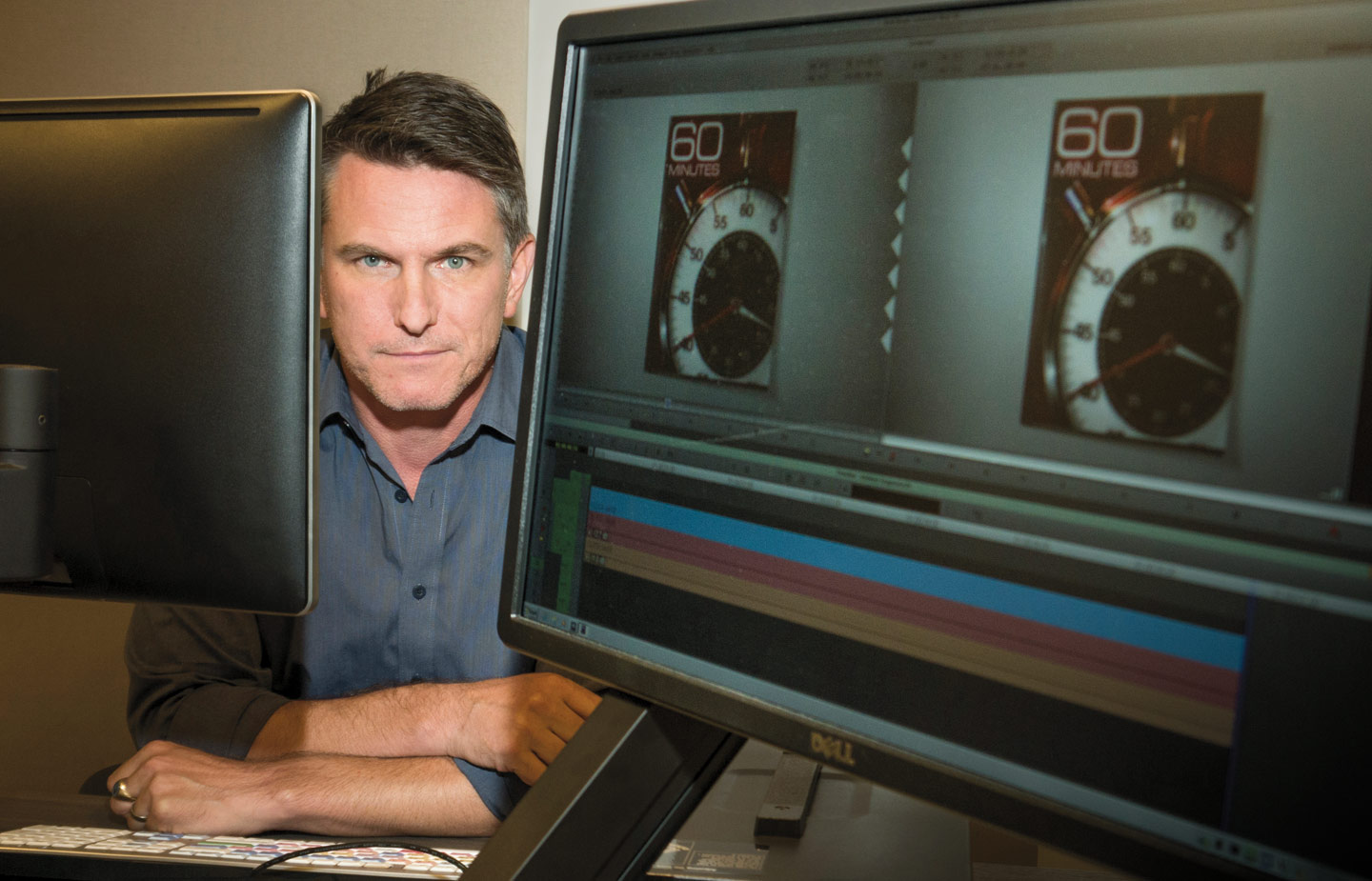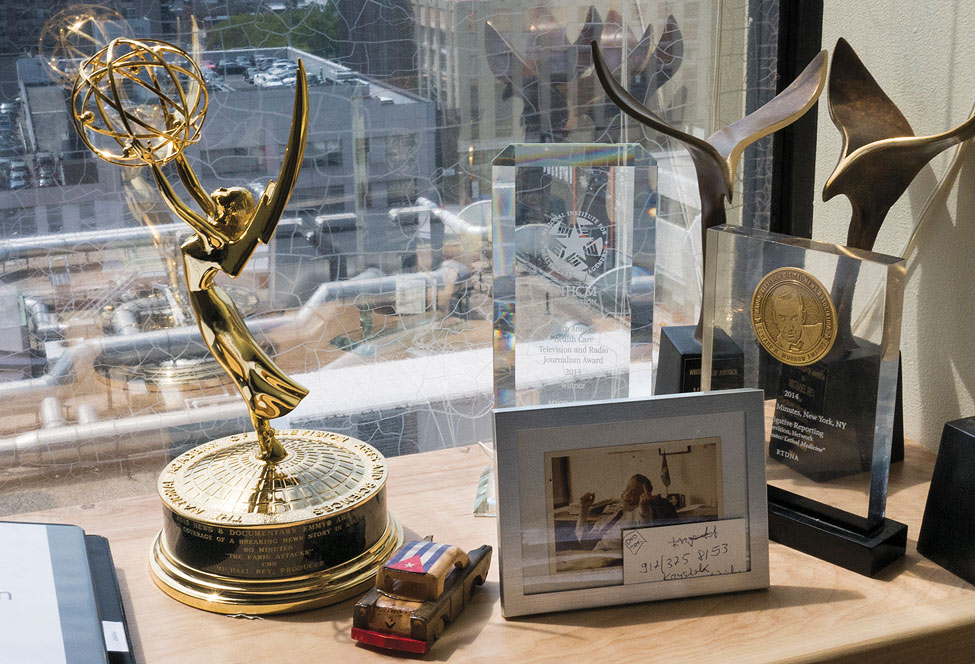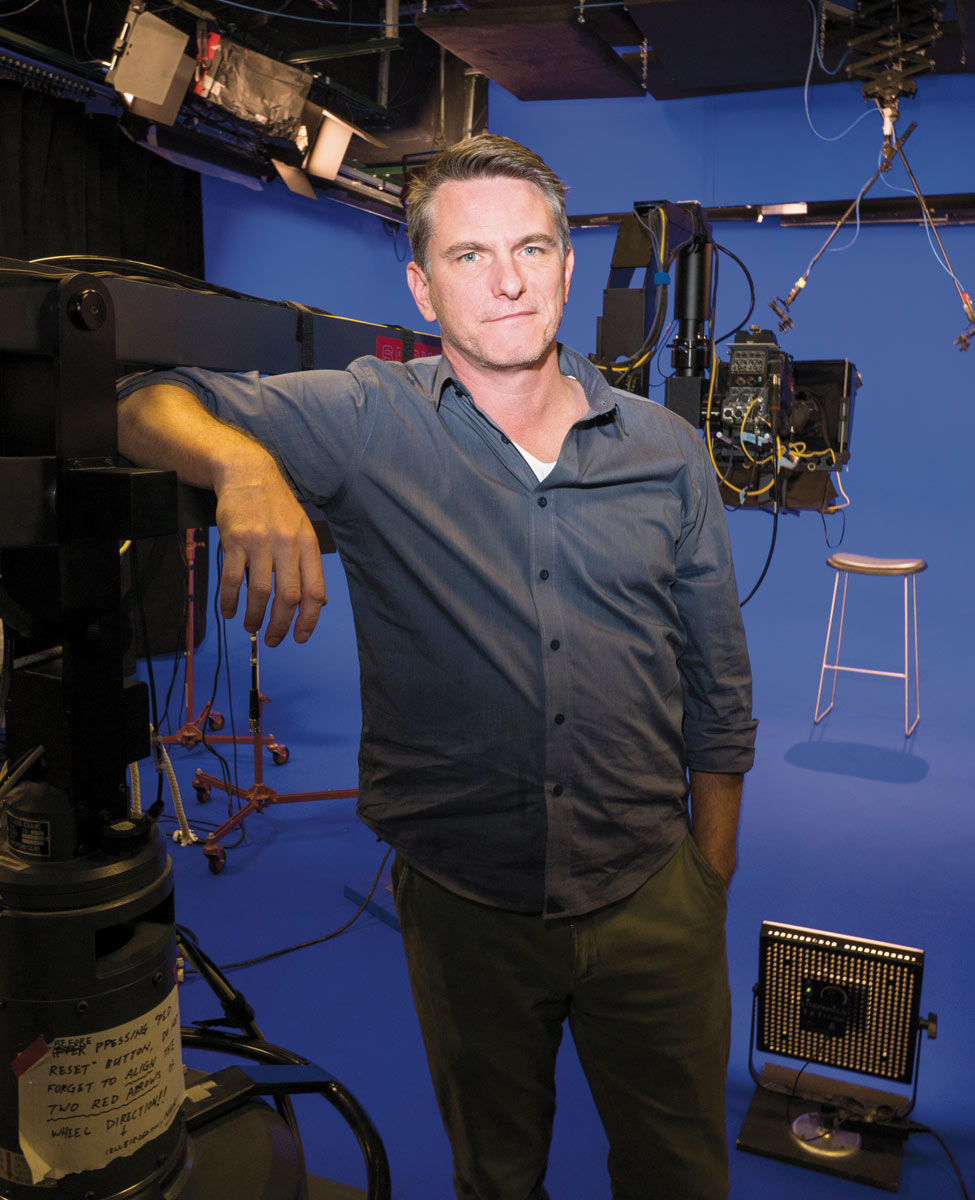50 Years of 60 Minutes
Emmy-winner Michael Rey ’93 is producing some of the most important investigative journalism.
It’s around 1 p.m. on a Wednesday in the Hell’s Kitchen neighborhood of Manhattan, and Michael Rey ’93 is giving me a tour of his offices in the CBS building on West 57th street. Rey is an Emmy-winning producer for the newsmagazine program 60 Minutes, which has been the most watched and revered public affairs show on TV for half a century. A segment he produced earlier in the year, about pro cyclists using hidden motors in their bikes, is reairing in a few weeks, and Rey wants to check on the correspondent, Bill Whitaker, who’s in a tiny sound booth recording some updated narration.
“Bill’s the hardest-working man in the business,” Rey tells me, as we head back to his office to talk about how he found his way onto one of the most iconic shows in television history.
His path wasn’t an obvious one.
After college, Rey traveled to Europe seeking adventure (and a job), and ended up writing for an English language business paper. Reflecting on his time at Conn, he says it’s where he first caught the journalism bug, despite having initially planned on studying human ecology.
“I realized I just wasn’t a strong science student, so I took a religion course … and I loved it so much I decided to major in comparative religious studies,” he says.
“It turned out to be the best major for journalism. It taught me how to write, how to think critically, and since it forced me to question religion and explore other cultures in ways I never had before, I also learned how to examine complicated issues from different angles.”
After he returned to the U.S., Rey’s first job at CBS was working as an assistant on 60 Minutes II, a spinoff that aired midweek as a companion series to the flagship show. After it was cancelled in 2005, Rey spent a year at 48 Hours, CBS’s Saturday-night murder mystery show, before joining the new investigative unit for The CBS Evening News when Katie Couric took over the anchor chair in 2006.
It was a story Rey did for the The CBS Evening News that he initially worried might be too obscure that would go on to win him an Emmy Award—a story about copy machines.
Rey and his team caught wind of a dirty little secret in the copy machine industry. Unbeknownst to many of the corporations, government agencies and medical organizations that leased digital copy machines for two or three years before trading them in for newer models, every copy made was stored on an internal hard drive that could then be accessed by whoever got ahold of the copier next. For organizations that create confidential documents or use private information such as health records, this revelation raised enormous privacy and legal liability concerns.


